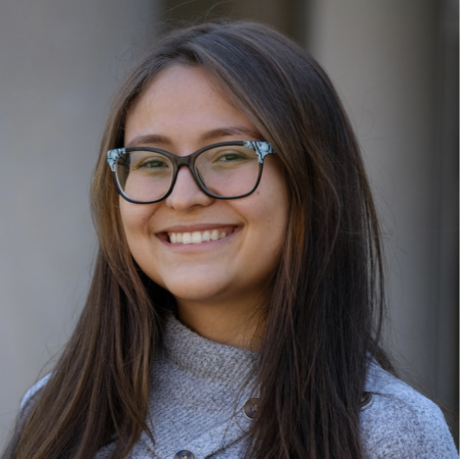Since 2020, Duolingo has supported graduate student researchers through the Duolingo Research Grant program. Our 2020 and 2021 cohorts included master's and doctoral students whose work focused on language learning and teaching with technology, and this year we expanded the program to support research into early (K-3) English literacy and elementary mathematics as well!
Today we're announcing our 2022 Duolingo Research Grant recipients. Their work improves teaching and learning with technology, here at Duolingo and around the world. Congratulations to the new cohort!
Second language learning
Samuel Davidson

Developing student-adaptable automated corrective feedback for L2 and heritage learners of Spanish
Providing feedback to students on their writing is extremely time-consuming for instructors, and for students, waiting for feedback can be frustrating and even reduce its efficacy. Sam is developing an automated, adaptable system that will provide real-time feedback to students of Spanish on their writing.
Twitter: @sam_samdavidson
LinkedIn: sam-davidson-nlp
Saad Hassan

Design and experimental evaluation of sign language look-up tools
Saad's research examines the challenges learners of sign languages face when searching for an unfamiliar sign, since there is no standard writing system to facilitate searching. Saad is creating prototypes for searching for signs, called "look-up systems," and is experimentally evaluating them with learners of American Sign Language to investigate key design settings and performance variables.
Twitter: @SaadHassann
LinkedIn: saadhassan1
Kevin Hirschi

Mobile-assisted pronunciation training for communicative success: Effects and moderating factors of motivation and technology acceptance
Kevin’s study investigates the effects of English pronunciation practice with a feedback-enabled mobile app that promotes communicative success. It also explores how learner motivation and technology acceptance impact learning outcomes. The findings will provide researchers, app developers, and learners with empirical guidance for effective mobile app design and use.
Elsayed Issa

ArabiPro and ArabiBot: Arabic language learning with automatic speech recognition and conversational AI
Elsayed’s study explores the effectiveness of computer-assisted pronunciation training systems and chatbots in the acquisition of Arabic. Two independent systems are being tested in a classroom environment. Results will uncover critical areas in teaching pronunciation and conversation via technological platforms for teachers and researchers.
Twitter: @SayedSabry11
LinkedIn: elsayed-issa-32759118b
Maria (Masha) Kostromitina

The effect of web-based pragma-prosodic instruction and aptitude on learner pragmatic development
Maria’s study examines the effectiveness of an online platform created to help language learners develop their interaction skills. Chinese learners of English practice making requests common in real-life communication and receive individualized feedback. Learners’ memory and ability to perceive intonation cues are measured as potential factors in instructional success.
Twitter: @mashalinguist
Early English literacy
Owen Henkel

Improving foundational literacy assessment: Using large-language models to evaluate student responses to open-ended reading comprehension tasks
Owen’s dissertation focuses on using pre-trained language models to auto-evaluate students' responses (both oral and written) to open-ended reading comprehension questions. His work seeks to harness the enormous potential of natural language processing to improve the quality and frequency of literacy assessment, particularly in low- and middle-income countries.
Twitter: @owen_henkel
Elementary mathematics
Luz E. Robinson

Reducing math anxiety and increasing math self-efficacy among Latinx elementary school students: The development and pilot test of a culturally responsive, bilingual math game
Luz’s dissertation focuses on developing and testing a math computer game for improving elementary students' math anxiety and self-efficacy through problem scenarios that children can identify with. *I AM (Apply Math) in my World* is a game with bilingual math problems, and Luz expects the game to be effective for all, but especially Latinx children.
Twitter: @luzrobinson29
Improving learning and teaching for everyone
We are excited to support the groundbreaking work of our 2022 Duolingo Research Grant recipients. Their research and findings will help improve teaching and learning in the fields of second language-learning research, early English literacy, and elementary mathematics. We will be following their work closely in the years to come!
Look for our 2023 call for proposals in January. Congratulations to our 2022 cohort!